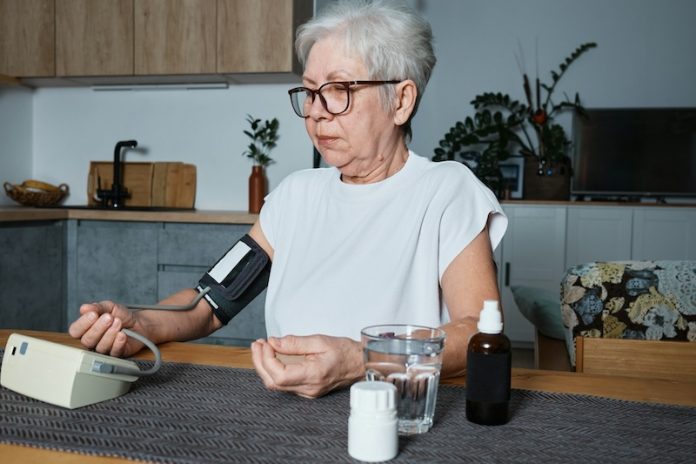
Doctors may need to prescribe medication to patients with slightly elevated blood pressure if lifestyle changes alone do not bring their levels down within six months, according to new guidance from the American Heart Association.
The recommendation focuses on people with stage 1 high blood pressure, which means their readings fall between 130-139/80-89 mm Hg. Under previous guidelines from 2017, doctors were advised to recommend lifestyle changes first and check blood pressure again after six months.
Medication was only considered if the patient had a higher than 10% riskof a heart attack or stroke within the next 10 years. However, the new statement suggests that even those with a low riskshould consider medication if their blood pressure remains too high after six months of consistent lifestyle changes.
This recommendation could affect nearly 10% of American adults, particularly those under 40 years old, as many younger adults fall into the stage 1 high blood pressure category. Research shows that maintaining blood pressure below 130/80 mm Hg reduces the risk of heart disease.
People with lower blood pressure tend to have healthier arteries, less calcium buildup in the heart, and a lower risk of developing dangerous conditions like atherosclerosis (fatty deposits in arteries).
Why Managing Blood Pressure Matters
High blood pressure increases the risk of serious health problems, including heart attacks and strokes. Studies have shown that treating high blood pressure saves lives by reducing these risks. That’s why doctors emphasize early intervention, even for those who are otherwise healthy.
For people with stage 1 high blood pressure, the first approach should always be healthy lifestyle changes. These include:
- Maintaining a healthy weight
- Exercising regularly (at least 30 minutes of moderate to vigorous activity on most days)
- Reducing sodium intake
- Increasing potassium intake through diet
- Following the DASH diet, which includes plenty of fruits, vegetables, and low-fat dairy while reducing saturated fat
- Limiting alcohol consumption
- Avoiding smoking
These habits not only help lower blood pressure but also improve overall heart health.
When to Consider Medication
If blood pressure does not improve after six months of consistent lifestyle changes, doctors may suggest adding medication. Patients should monitor their blood pressure regularly and discuss any concerns with their doctor. If their systolic blood pressure (the top number) remains above 130 mm Hg, it may be time to explore medication options.
The new guidance also highlights that young people who took blood pressure medication as teenagers often develop heart disease markers as they grow older. This means that doctors need to carefully evaluate whether continuing medication is necessary for long-term health.
The key takeaway is that high blood pressure should not be ignored, even in young and otherwise healthy individuals. Regular monitoring, lifestyle improvements, and, if needed, medication can help prevent serious health problems in the future.
If you care about high blood pressure, please read studies that early time-restricted eating could help improve blood pressure, and natural coconut sugar could help reduce blood pressure and artery stiffness.
For more health information, please see recent studies about added sugar in your diet linked to higher blood pressure, and results showing vitamin D could improve blood pressure in people with diabetes.
Copyright © 2025 Knowridge Science Report. All rights reserved.



